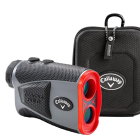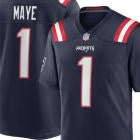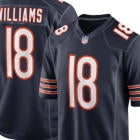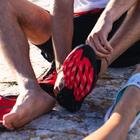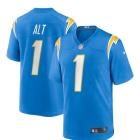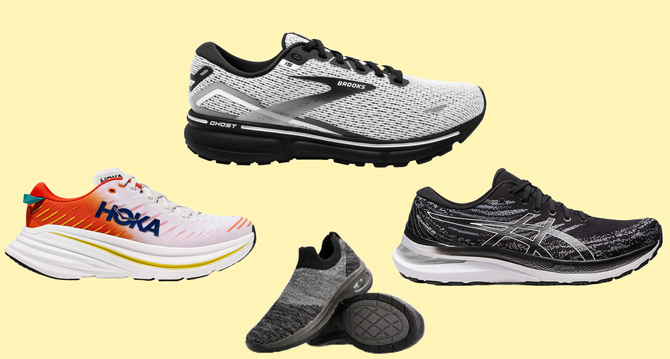
One of the most common causes of heel pain, plantar fasciitis can cause stabbing aches in your foot, making each step feel excruciating. For people who spend all day on their feet, a flare-up of plantar fasciitis can completely derail a day.
Wearing the right shoes can make all the difference.
"To avoid and to treat plantar fasciitis, the foundation is the shoes you wear and how much arch support you give your feet," Dr. Elizabeth Daughtry, DPM, FACFAS, told CBS Sports Essentials. By wearing supportive walking shoes or running shoes, you can minimize the pain that tends to shoot through your foot each time you step down.
What makes a good shoe for plantar fasciitis? According to Dr. Mohammad Rimawi, a New York City-based board-certified podiatrist, "Arch support, shock absorption in the heel and flexibility in the forefoot are crucial."
Keep reading to find the absolute best shoes for plantar fasciitis, according to podiatrists.
Most recommended shoe for plantar fasciitis: Brooks Ghost 15
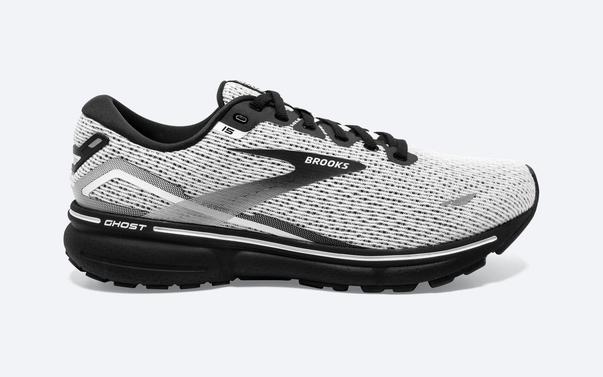
Multiple podiatrists told CBS Sports that the Brooks Ghost line is one of the shoes they recommend most often to patients with plantar fasciitis.
"With a 12mm heel-to-toe drop, stable midsole and wide toe box, this shoe is ideal for everyday training and can help alleviate stress on the plantar fascia," Rimawi said.
Designed for a soft, smooth ride, the Brooks Ghost 15 is built to keep your foot comfortable on long runs. That means maximum shock absorption, support only where you need it and a design that won't feel heavy on your foot, even after logging multiple miles.
"This is a great option for people with plantar fasciitis," added Daughtry, who also recommended the shoe. "It is a neutral running shoe with slightly more cushioning."
The balanced design cushions each step for a soft landing, which can help minimize the stabbing pain people with plantar fasciitis often feel when they're on the move.
Top features of the Brooks Ghost 15
- With a 12 mm heel drop, this running shoe offers good arch support while still being a relatively neutral running shoe.
- The GlideRoll rocker helps your foot move naturally, minimizing the pain caused by flexing the ligaments in your plantar fascia.
- Plush cushioning provides next-level shock absorption while walking or running.
Shop men's sizes:
Shop women's sizes:
$140 at BrooksBest shoes for shock absorption: Asics Gel Kayano 29
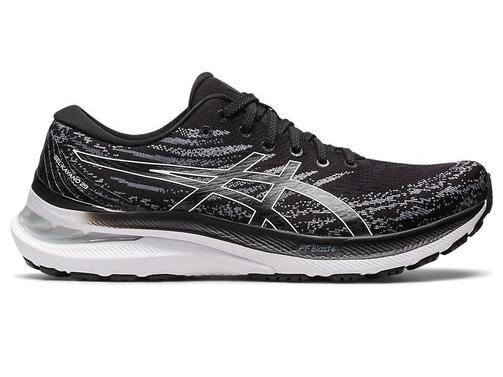
Another shoe that was mentioned often by podiatrists was the Asics Gel Kayano line.
"Featuring a 10mm heel-to-toe drop, external heel cushioning and a deep heel cup, this shoe reduces the load and forces on the plantar fascia," Rimawi said of the Asics Gel Kayano 29.
It has a lower heel drop than the Brooks Ghost 15, but maximum cushioning with gel injected into the heels makes this one of the best shoes to wear for shock absorption. If your pain is at its worst right when your heel first strikes the ground, this is the shoe for you. That gel gently cradles your heel and redistributes the shock of each step.
The shoe also offers good support in the form of a responsive foam sole and ortholite X-55 sock liner. Overall, it's still neutral enough to feel comfortable on most feet while offering cutting-edge cushioning for the softest landing possible.
Get them while they're on sale for $90 (reduced from $160).
Top features of the Asics Gel Kayano 29:
- Gel embedded in the rear of the midsole provides best-in-class shock absorption on every heel strike.
- Lightweight and responsive foam adds extra cushioning while helping your foot glide through each step.
- A deep heel cup and midfoot structure provide gentle support suitable for a neutral gait.
Shop men's sizes:
Shop women's sizes:
$90 at AsicsCushiest running shoe for plantar fasciitis: Hoka Bondi X
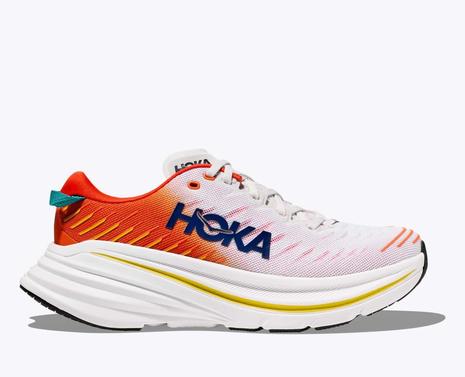
Just about any Hoka would be a great pick for someone with plantar fasciitis, though the Hoka Bondi X is probably the best example of everything that makes a Hoka so great for aching feet.
"This shoe's rocker-type structure allows for more natural foot movement, minimizing strain on the plantar fascia and calf," Rimawi said.
It offers a tall stack of cushioning for great shock absorption along with a propulsive ride that gives your foot a boost with every step. That way, your aching feet don't have to work as hard to move you forward.
It's soft, supportive and balanced enough to feel comfortable on almost any foot.
Get the cushy Hoka running shoe while it's on sale for $162 (reduced from $215).
Top features of the Hoka Bondi X:
- A unique rocker with responsive foam helps facilitate a smooth stride so your feet can relax.
- Lots of cushioning provides shock absorption and comfort.
- The lightweight running shoe will fit well on most feet.
Shop men's sizes:
Shop women's sizes:
$162 at HokaBest recovery shoe for plantar fasciitis: Hyper Arch Motion
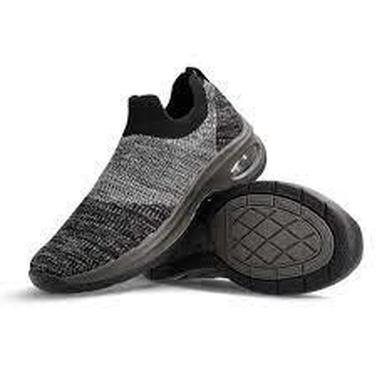
The Hyper Arch Motion is a true orthopedic shoe offering maximum arch support to help improve alignment to take stress off of your ankles and knees.
Dr. Mauricio Garcia, an orthopedic surgeon who helped designed the Hyper Arch Motion, told CBS Sports Essentials, "Walking shoes should have a deep heel cup to keep your foot secure and in the proper alignment when you step, as well as sturdy but flexible soles to offer stability and comfort."
That's exactly what this shoe does. The dual-layer insole gently supports your arch and helps correct alignment to take the stress off your joints as you walk.
The memory foam layer on the insole cushions each step and absorbs impact to prevent pain and allow your feet to heel. With extra padding around the heel and a ventilated design, these shoes prevent overheating and friction, even if you're wearing them all day long.
Top features of the Hyper Arch Motion:
- This orthopedic shoe helps correct alignment to take the stress off of your joints when you walk.
- The memory foam and EVA foam blend in the midsole is pillowy-soft and molds to your feet while offering just a hint of bounce to propel each step.
- A breathable mesh upper and ventilated sole ensure your feet don't get hot.
Shop more top-rated shoes for plantar fasciitis
- Another podiatrist-recommended Hoka: Hoka Gaviota 5, $175
- Responsive running shoes with great shock absorption: Nike Pegasus 40, $73 and up
- A shoe with a cork and latex footbed that molds to your arches: Naot Galaxy, $165
- Lightweight yet supportive running shoes: On Cloudsurfer, $160
What's the best running shoe for plantar fasciitis?
The shoes doctors recommend for plantar fasciitis are cushy and stable -- often from top-rated running-shoe brands like Hoka or Brooks. But the common dominator across every shoe doctors recommended: arch support and shock absorption.
"The brands of shoes that I recommend for patients with plantar fasciitis are either On or Hoka, as they provide ample cushion and support while still being relatively light," Dr. Matt Tanneberg, chiropractor and certified strength and conditioning specialist at Body Check Chiropractic & Sports Rehabilitation, told CBS Sports Essentials.
"Always lean to the side of more supportive and cushioned," Tanneberg emphasized, adding that you should stay away from minimalist or flat shoes if you're dealing with plantar fasciitis.
In addition to wearing the right shoes, podiatrists also noted the importance of getting rid of old shoes.
"Regularly replace worn-out sneakers to maintain proper support and shock absorption," Rimaw advised. The rule of thumb is to replace your walking shoes or running shoes every 500 miles, but the key is to pay attention to signs of wear and tear. If that once-cushy and supportive insole now looks flattened and worn, it might be time for an upgrade.
Does anything really help plantar fasciitis?
In general, podiatrists agree that the best way to help plantar fasciitis is to wear supportive shoes and make stretching and massage part of your daily routine.
"Stretching exercises help keep the ligament gently stretched to avoid excessive tightness," Daughtry says. Your daily routine should include a massage gun to alleviate muscle tension followed by gentle stretches that help improve flexibility and minimize tightness.
Another key for both treating and preventing future flare-ups of plantar fasciitis: Wear supportive shoes all the time. "Supportive footwear should be worn not only during physical activity but also at home to reduce strain on the plantar fascia," Rimawi said.
If you don't typically wear shoes in your house, consider getting a pair of supportive recovery shoes that you only wear at home.












